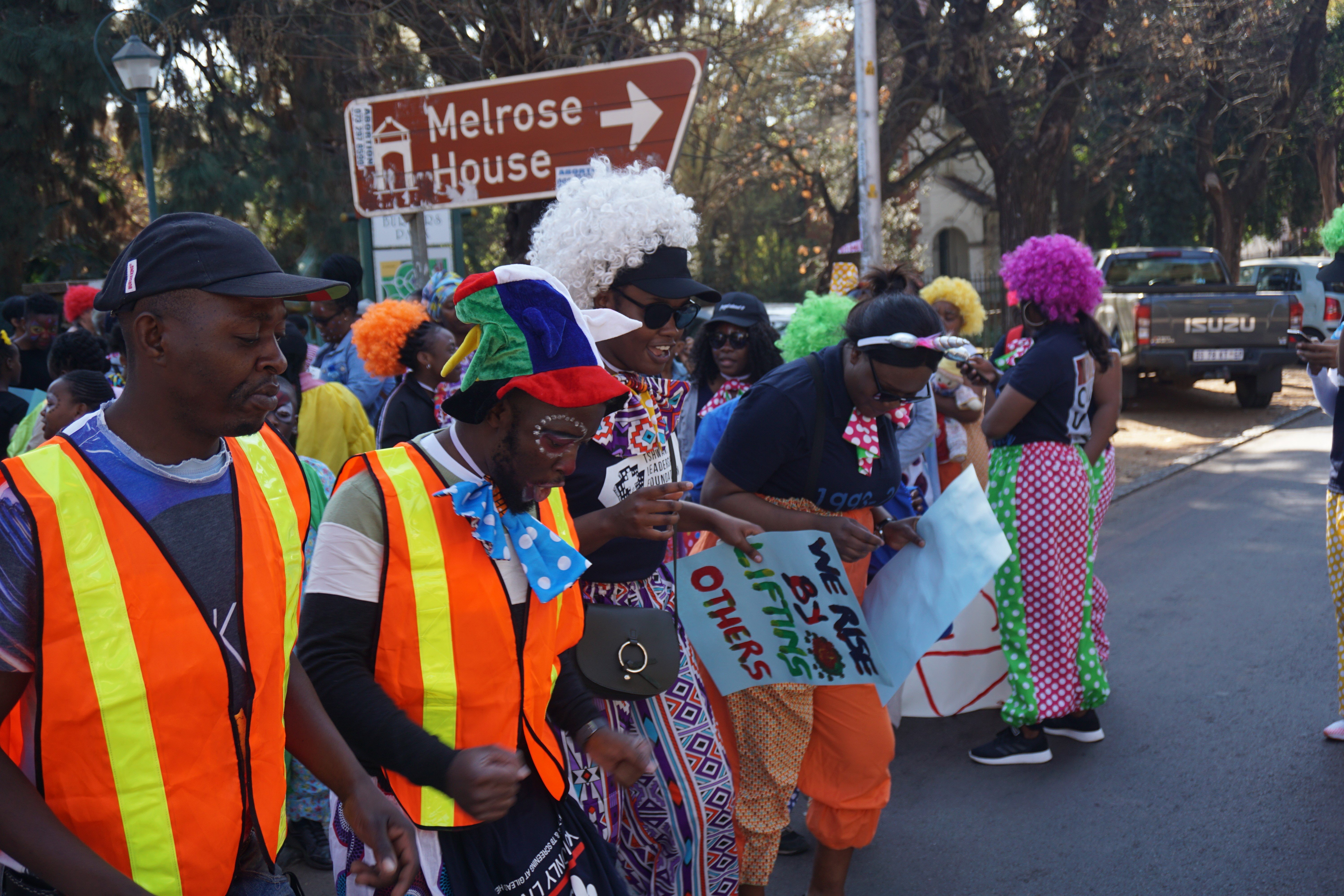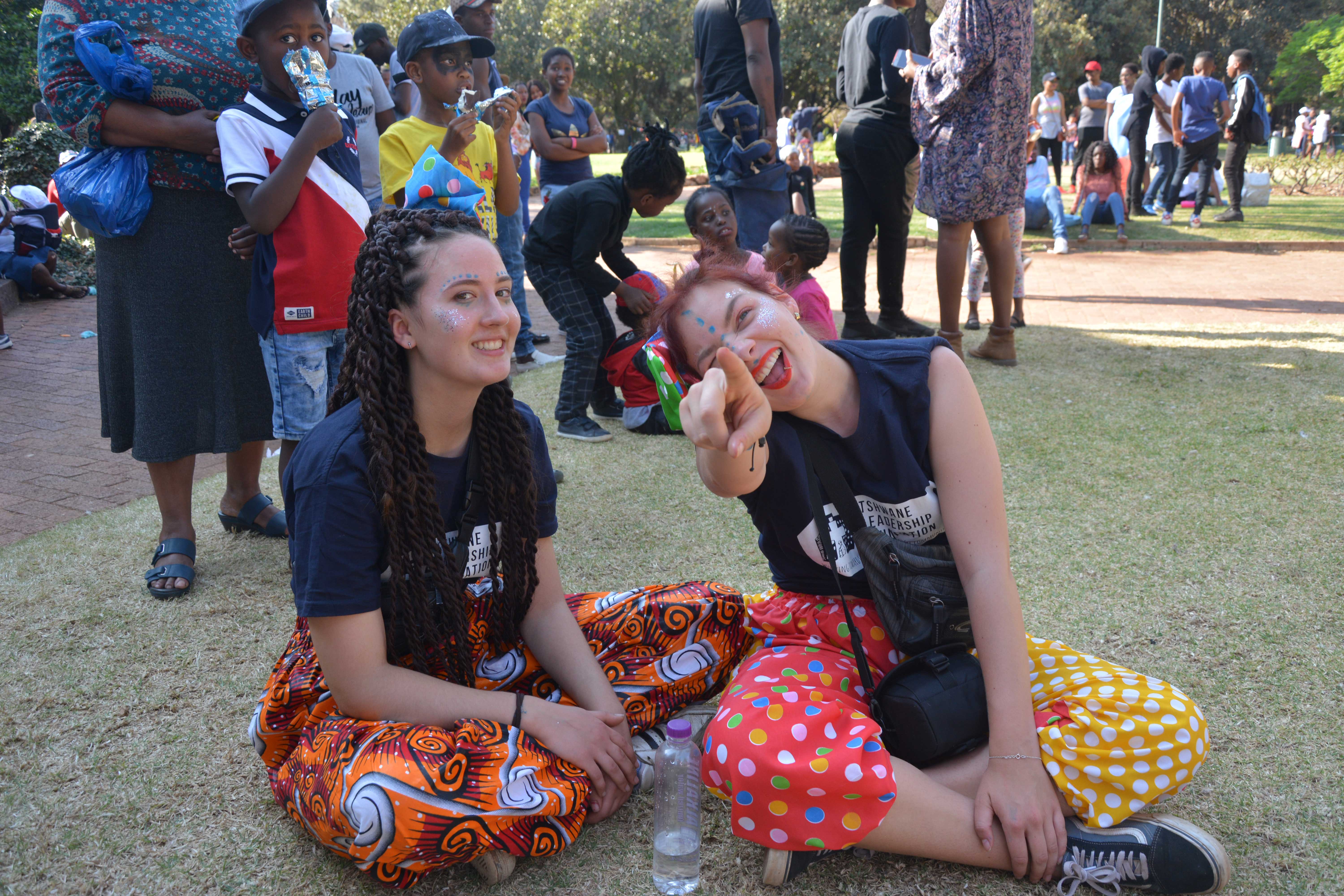Posted on September 28, 2021
PRETORIA – The Centre for Faith and Community at the University of Pretoria (UP) will once again play its part in the Feast of the Clowns, an inner-city festival of hope that has been hosted by the Tshwane Leadership Foundation since 2000. The main festival will take place in and around Burgers Park in Pretoria on 16 October.
This year, the centre was called upon to support the festival through programme development and capacity-building workshops. “The Feast of the Clowns is an ideal space to bridge the gap between university and community, and to share different contexts and resources with one another,” says Prof Stephan de Beer, Director of the centre and the Unit for Street Homelessness in UP’s Faculty of Theology and Religion. “It is a space where diverse stakeholders and partners can offer their resources; it builds connections and partnerships across various barriers; and it honours inner-city spaces as vital, life-affirming and sacred.”
The festival celebrates the city, arts and justice, builds community and creates awareness for a range of social concerns. Prof De Beer explains why the clown is the ideal metaphor for an event of this nature. “The clown wants to bring joy where there is sadness or pain, but also cries over that which causes pain. The clown also reminds those in power of their frailty, and protests that which is unjust in playful and disarming ways.”
Central to the festival is fostering a connectedness with vulnerable people in urban spaces. Its awareness-raising campaigns and workshops focus on issues such as homelessness and housing, gender-based violence, child justice, health justice, the plight of refugees and migrants, and greener cities. Inner-city communities in Tshwane as well as communities from Mamelodi, Eersterust, Mabopane and Pretoria East will participate in the festival. Homeless communities always actively participate in the festival, and in 2021 the reclaimer (people who reclaim reusable and recyclable materials from dumps in the Tshwane area) community will also come out in support.
The main festival will be preceded by two weeks of workshops and related activities. Variations on this year’s theme, which is ‘The courage to be…’, will be unpacked; sub-themes include the courage to speak out, the courage to be silent, the courage to love, the courage to do justice, the courage to care, the courage to resist and more, Prof De Beer explains.

This year, there will be a 10-mural project on the theme of courage; the murals will also support civil society in adopting and regenerating Burgers Park as a public open space. Music therapy will also be offered to workers who have been supporting homeless individuals for the past 16 months during COVID-19; NGOs will address issues of gender-based violence with local communities; and grass-roots education on primary healthcare will be given. In addition, vaccinations will be offered to homeless and undocumented people.

Nicola Smith, Knowledge Coordinator for the Centre for Faith and Community, says workshops about religion, migration, reconciliation, community engagement, advocacy and gender-based violence will be run. There will also be drumming, and dance and music therapy. More than 30 workshops are on the agenda.
“Inner-city communities facilitate the University in shaping better questions, which again support value-adding interventions,” Smith says. “The workshops hope to reimagine urban communities that are resilient, and who share and care for one another.”
Various faculties, departments and centres at UP are involved, including the Centre for Sexualities, Aids and Gender and the Community-Oriented Primary Health Care Research Unit. Both academics and students are involved in workshops, volunteering and capacity-building programmes.
“The challenges of the inner city are on the doorstep of the University,” Prof De Beer says. “The festival is an extension of engaged scholarship and citizenship, and a means of understanding that the University is a partner and companion of the city, offering its resources to build capacity and address policy, and learning from the voices and concerns articulated during the festival. “In 2021, amid COVID-19, the Festival of the Clowns can offer a small oasis of hope. Theologian Harvey Cox wrote: ‘Laughter is the last weapon of hope.’ If we can still laugh, including at ourselves, hope is still alive.”
Copyright © University of Pretoria 2025. All rights reserved.
Get Social With Us
Download the UP Mobile App